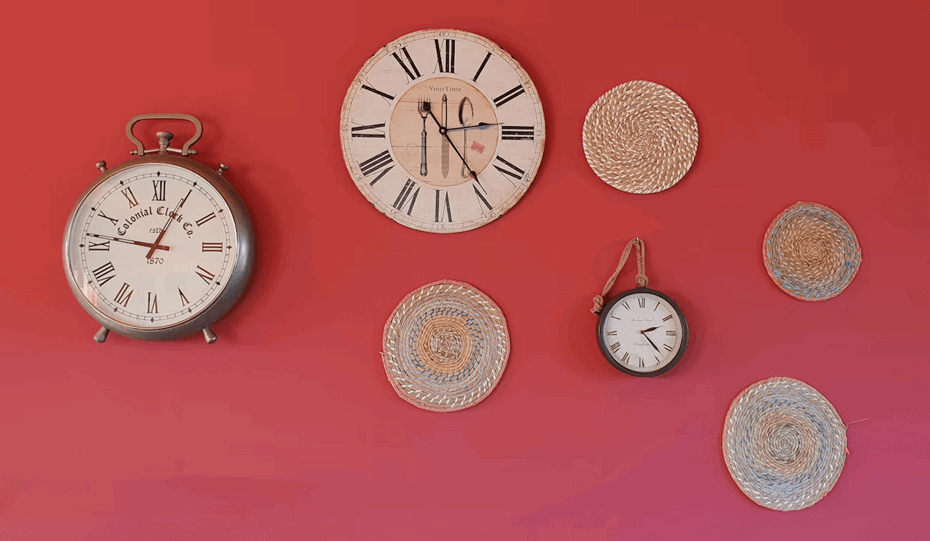Realistic Tips on How To Deal with Procrastination
Procrastination is a tough habit to break. Many people who struggle with procrastination learn to live with it instead of confronting the issue directly. Many of those who do attempt to fix the problem often struggle to be consistent with their commitment in the long run.
Sadly, there's no single solution or fast fix for procrastination. But there are practical, easy-to-follow tips that can help you get started on the right track.
Relevant procrastination statistics
How many adults procrastinate?
- An estimated 20% of the adult population procrastinates.
- Among college students, around 80% to 95% procrastinate. 50% of college students do so chronically.
How does procrastination affect those who procrastinate?
- In one study, 94% of those who said they procrastinate revealed that it has a negative impact on their happiness while 18% percent said it has become extremely problematic.
- One study that looked at the impact of procrastination on salaries revealed that a single-point increase on a 5-point scale that gauges a person's tendency to procrastinate corresponded to a $15 000 drop in their salary.
- Large-scale research that split the population into procrastinators and non-procrastinators found that those who procrastinate make up 57% of the unemployed population.
 Image by Nubelson Fernandes on Unsplash
Image by Nubelson Fernandes on Unsplash
What causes procrastination?
- 50% of participants in one study said they avoid a task for two reasons: 1) they think the task is boring or they don't like it and 2) doing such a task doesn't give them any immediate reward.
- Another study found that confidence played a crucial role in why 8% of those in the study felt the need to procrastinate.
- Separate meta-analysis studies reveal that procrastination is negatively correlated with self-efficacy and self-esteem, and is positively correlated with depression. This means that the more an individual procrastinators, the more it takes a blow on their self-efficacy and self-esteem and that the more they procrastinate, the more they will feel depressed.
- Other causes of procrastination include fear of failure and sensation-seeking meaning people who procrastinate look forward to the excitement of doing a task at the last minute.
- A different study pointed out that people who procrastinate are hard on themselves or have low self-compassion.
Related: 7 Realistic Time Management Tips to Beat Procrastination
4 Practical Tips on How to Tackle Procrastination
Tip #1: Recognize one crucial fact: The only thing that will truly make you feel better is to do the very task you’re avoiding.
People who procrastinate aren't just putting off a task, but also avoiding it due to negative feelings they associate with it. This can stem from various reasons, like finding the task hard or fearing that they can’t do it well enough. Whatever the cause, this strong negative link often leads them to delay the task entirely.
However, procrastinators also know that doing so will only lead to feelings of guilt in the future. They don’t want to do the task but they also know that they’re going to feel bad about it later on. The only thing that will make the procrastinator truly feel better is if they tackle the task head-on. This is one important piece of fact that every procrastinator needs to keep in mind every time they find themselves in this familiar situation.
Getting into this mindset brings them one move closer to the next crucial step.
 Image by Magnet.me on Unsplash
Image by Magnet.me on Unsplash
Tip # 2: Start small
One study on procrastination shows that people who procrastinate often feel unsure about their abilities and what to do next, leading to unpleasant emotions about the task.
But what if, during those initial minutes of procrastination, you pause to plan how you'll tackle the task? By mentally outlining the steps, you can begin to grasp the process and understand what's required to accomplish it.
Try this trick whenever you want to put off a task. It won't always make you act immediately, but it can help ease the uncertainty about getting it done.
Tip # 3: Don’t feed the negative feelings
A procrastinator goes through a whole cycle of emotions that are triggered by the task. It begins with a familiar feeling of aversion towards the task followed by the desire and decision to delay said task in order to avoid the unpleasant feeling. The initial relief from delaying the task is often coupled with feelings of guilt which often lasts even until the procrastinator decides to finally face the task. After the task is accomplished, they may experience a certain vindication in their ability to finish the task even at the last minute, which is also why they perpetuate the habit and repeat the cycle all over again.
This cycle is often contributed to and exacerbated by a host of underlying issues such as low self-esteem, lack of confidence in one’s abilities, and fear of failure.
According to Professor Fuschia Sirois from the University of Durham, beating procrastination starts with being kinder to yourself.
It's important to realize that everyone, including ourselves, can make mistakes. These mistakes aren't the end of the world. Instead of being overly critical, take a step back, acknowledge the issue, and remember that you have the ability to solve it.
“I think people don’t realize that procrastinators, especially chronic procrastinators, are extremely hard on themselves – before and after the task. And rather than getting on with the job, they just go round and round spinning their wheels,” Dr. Sirois says.
Tip #4: Change how you see the task
Procrastinators often view the task as another meaningless item in a to-do list. When you think the task is meaningless, you are more likely to turn over subpar work and repeat the habit in the future. But if you change your mindset about the importance of the task, you can also change how you approach and tackle the task.
Ask questions that allow you to reframe your perception of the upcoming task:
- How will completing this goal be valuable in how you see yourself?
- How will completing this goal be valuable in how others see you?
- How will completing this goal be valuable to my personal growth?
When you see the task as something that deserves your time and effort, you are more likely to not procrastinate on it.
 Photo by Karim MANJRA on Unsplash
Photo by Karim MANJRA on Unsplash
Conclusion
The way you handle little things mirrors how you handle everything else in life. Don't let this habit seep into your work, relationships, and goals. Beating procrastination is tough but crucial. Start now, because you're worth it, whether you believe it or not.
Download TaskSpur on Android | Download TaskSpur on your iPhone
Sign up or Login on your browser
Related: 7 Realistic Time Management Tips to Beat Procrastination
References
- How to Finally Stop Procrastinating. (2021, August 3). Psychology Today. https://www.psychologytoday.com/us/blog/how-be-yourself/202108/how-finally-stop-procrastinating
- Ling, T. (n.d.). How to finally break your procrastination habit, explained by a psychologist. BBC Science Focus Magazine. https://www.sciencefocus.com/science/procrastination
- Dua, K. (2023). Procrastination: Facts and Stats 2023. The Creatives Hour. https://thecreativeshour.com/procrastination-facts-and-stats/?expand_article=1
- How to Stop Procrastinating: Tips and Techniques for overcoming Procrastination. (n.d.). https://solvingprocrastination.com/how-to-stop-procrastinating/
- MindTools | Home. (n.d.). https://www.mindtools.com/a5plzk8/how-to-stop-procrastinating